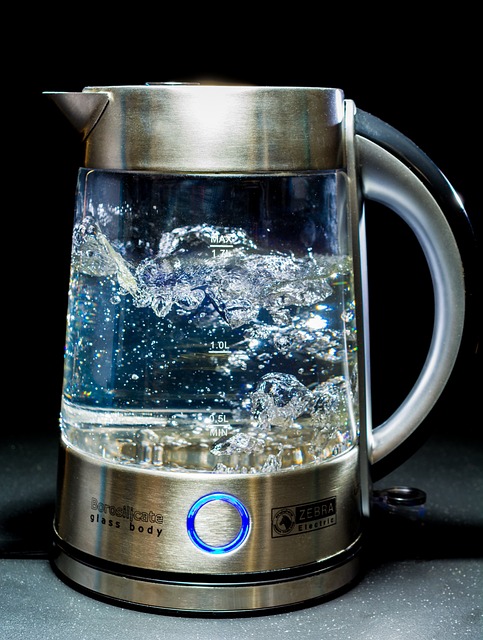Gas vs Electric: Unlocking Longevity Secrets for Your Water Heater
Water heaters typically last 8-12 years (gas: 8-12 years, electric: 10-15 years), but signs like fre…….
In today’s world, access to hot water is a fundamental aspect of modern living, playing a pivotal role in our daily routines, from bathing and cooking to cleaning and heating homes. However, like all appliances, water heaters have a lifespan, and recognizing the signs that indicate it’s time for an upgrade is crucial for homeowners and businesses alike. This article delves into the intricate world of water heater technology, exploring the various indicators that your current system may need replacing. By the end, you’ll be equipped with the knowledge to make informed decisions regarding this essential household component.
Definition: The term “Signs You Need a New Water Heater” refers to the indicators or symptoms that signal the end of a water heater’s useful life and the need for a replacement. These signs can range from performance issues and increased energy consumption to safety hazards and outdated technology.
Core Components and Historical Context: A typical water heater comprises several key components, including the tank (for storage), heating elements or a burner, insulation, a pressure relief valve, and various control mechanisms. Over time, these components can degrade due to corrosion, mineral buildup, or wear and tear. Historically, water heaters have evolved from early designs using wood or coal for heating to modern electric, gas, or propane models, each with its advantages and drawbacks.
Significance: Recognizing the signs of a failing water heater is vital for several reasons:
The concept of “Signs You Need a New Water Heater” has a significant global impact, influencing both developed and developing nations. Key trends shaping this domain include:
The economic aspects of “Signs You Need a New Water Heater” are multifaceted:
Technological innovations have revolutionized the water heater market:
Several indicators suggest that your water heater may need replacing:
Water heater safety is paramount:
When selecting a new water heater, consider these factors:
Regular maintenance can extend the life of your water heater:
Q: How often should I replace my water heater?
A: The general rule is to replace it after 8-12 years, but factors like usage, maintenance, and energy efficiency can influence this timeline.
Q: Can I just insulate my old heater to save energy?
A: While insulation helps, it’s not a permanent solution. If your heater shows signs of failure or is outdated, replacement is often the best option for long-term savings.
Q: What should I do if my water heater is leaking?
A: Turn off the water supply immediately and contact a professional. Leaks can lead to damage and increased risk of mold growth.
Q: Are smart water heaters worth the investment?
A: Smart heaters offer convenience, energy management, and potential cost savings. However, initial costs may be higher, so consider your budget and long-term benefits.
Recognizing “Signs You Need a New Water Heater” is essential for maintaining a comfortable and efficient household or commercial environment. By understanding the indicators, choosing the right replacement, and implementing proper maintenance practices, homeowners and business owners can ensure reliable hot water access while conserving energy and saving money. Stay informed, stay safe, and make smart decisions regarding your water heater needs.

Water heaters typically last 8-12 years (gas: 8-12 years, electric: 10-15 years), but signs like fre…….

Evaluating whether to repair or replace your water heater revolves around its age, performance, and…….

Gas water heaters typically last 8-12 years but can fail earlier due to reduced heating capacity, te…….

If your water heater consistently runs out of hot water during peak times, makes unusual noises like…….

Unforeseen water heater breakdowns disrupt daily routines. Early signs like sudden temperature drops…….

Neglecting water heater maintenance can result in rising utility bills, inconsistent hot water tempe…….

Unusual noises (humming, whining) or leaks from your water heater are clear signs it may need replac…….

Homeowners often ignore potential problems with their water heaters until they suddenly stop working…….